Firm Dynamics and Employment Outcomes
In a market economy, firm foundations and closures are important drivers of resource (re)allocation, structural change, and economic development which is particularly important with respect to the economic transformation of East Germany from a state-directed to a market economy. At the same time, job displacement coming along with structural change may have serious consequences for affected employees, such as unemployment, earnings losses, or lower job quality in a new job. This research group uses microeconometric methods to analyze foundation, evolution, and failure of firms, the amount and quality of jobs created by new firms and the consequences of firm closures for employees, in particular in terms of labor market outcomes such as employment and wages.
Research Cluster
Productivity and InstitutionsYour contact

Mitglied - Department Structural Change and Productivity
EXTERNAL FUNDING
01.2020 ‐ 06.2024
The Rise of Populist Parties in Europe: The Dark Side of Globalization and Technological Change?
VolkswagenStiftung
Globalisation may have increased prosperity in general, but has also led to unemployment, wage inequality, outward migration and, thus, ageing populations in many European regions. This project examines whether these economic burdens lead to votes for populist parties.
01.2019 ‐ 06.2022
MICROPROD („Raising EU Productivity: Lessons from Improved Micro Data“)
European Commission
The goal of MICROPROD is to contribute to a greater understanding of the challenges brought about in Europe by the fourth industrial revolution and the associated ‘productivity puzzle’ in a context of globalisation and digitisation, and to provide alternative policy options to better address these challenges.
This project has received funding from the European Union’s Horizon 2020 research and innovation programme under grant agreement No 764810.
07.2018 ‐ 12.2020
Firm Wage Differentials in Imperfect Labour Markets: The Role of Market Power and Industrial Relations in Rent Splitting between Workers and Firms
German Research Foundation (DFG)
The main purpose of this proposal is to grasp a firmer understanding of how employment rents are split between workers and employers in imperfect labour markets and how labour market institutions, such as unions and works councils, influence the distribution of rents. In that it not only promises new insights into the wage formation process and the likely consequences of important labour market trends like falling unionisation and worker codetermination, but also promises to inform important public policy debates, such as which rights should be granted to organised labour.
02.2019 ‐ 09.2019
Evaluation of the IAB Establishment Panel 2018 and Preparation of a Results Report for West and East Germany
Final report: Fehlende Fachkräfte in Deutschland – Unterschiede in den Betrieben und mögliche Erklärungsfaktoren: Ergebnisse aus dem IAB-Betriebspanel 2018. IAB-Forschungsbericht 10/2019. (in German, English abstract available)
04.2016 ‐ 03.2019
Wage and Employment Effects of Bankruptcies
German Research Foundation (DFG)
The project analyzes the process and the consequences of firm failure. For the first time, evidence on the consequences of small firms’ bankruptcy on employees’ earnings and wages is provided. The project e.g. shows that employees of small firms are more likely to see their employer failing but, at the same time, face smaller earnings and wage losses than employees displaced from larger firms. Check the below research articles for further insights.
01.2018 ‐ 12.2018
Evaluation of the IAB Establishment Panel 2017 and Preparation of a Results Report for West and East Germany
Final report: Lohnunterschiede zwischen Betrieben in Ost- und Westdeutschland: Ausmaß und mögliche Erklärungsfaktoren. Ergebnisse aus dem IAB-Betriebspanel 2017. IAB-Forschungsbericht 6/2018. (in German, English abstract available)
01.2017 ‐ 09.2017
Evaluation of the IAB Establishment Panel 2016 and Preparation of a Results Report for West and East Germany
Final report: Produktivitätsunterschiede zwischen West- und Ostdeutschland und mögliche Erklärungsfaktoren. Ergebnisse aus dem IAB-Betriebspanel 2016. IAB-Forschungsbericht 16/2017. (in German, English abstract available)
Refereed Publications
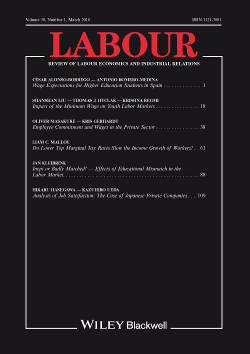
Losing Work, Moving Away? Regional Mobility After Job Loss
in: LABOUR: Review of Labour Economics and Industrial Relations, No. 4, 2017
Abstract
Using German survey data, we investigate the relationship between involuntary job loss and regional mobility. Our results show that job loss has a strong positive effect on the propensity to relocate. We also analyse whether displaced workers who relocate to a different region after job loss are better able to catch up with non-displaced workers in terms of labour market performance than those staying in the same region. Our findings do not support this conjecture as we find substantial long-lasting earnings losses for movers and stayers and even slightly but not significantly higher losses for movers.
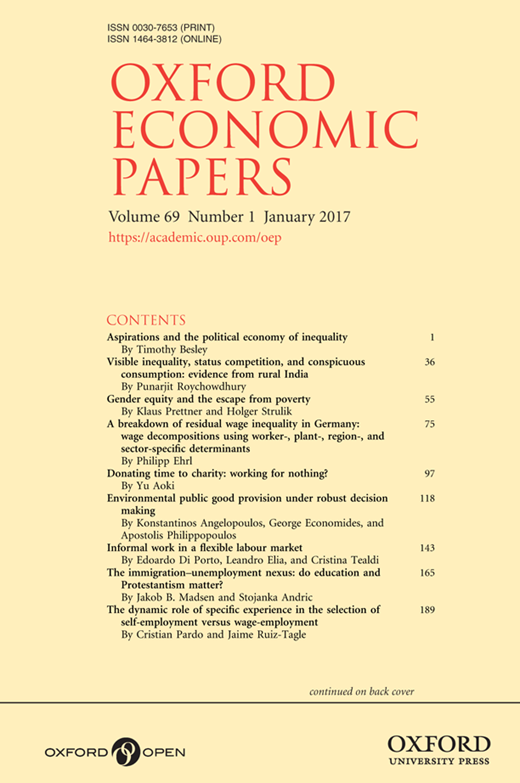
Coming to Work While Sick: An Economic Theory of Presenteeism With an Application to German Data
in: Oxford Economic Papers, No. 4, 2017
Abstract
Presenteeism, i.e. attending work while sick, is widespread and associated with significant costs. Still, economic analyses of this phenomenon are rare. In a theoretical model, we show that presenteeism arises due to differences between workers in (healthrelated) disutility from workplace attendance. As these differences are unobservable by employers, they set wages that incentivise sick workers to attend work. Using a large representative German data set, we test several hypotheses derived from our model. In line with our predictions, we find that bad health status and stressful working conditions are positively related to presenteeism. Better dismissal protection, captured by higher tenure, is associated with slightly fewer presenteeism days, whereas the role of productivity and skills is inconclusive.
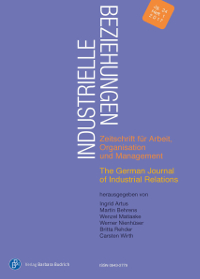
Works Councils and Other Plant-specific Forms of Employee Participation – Substitutes or Complements?
in: Industrielle Beziehungen, No. 3, 2017
Abstract
Using data from the IAB Establishment Panel (2004-2013), this paper analyses the incidence, development and interdependence of works councils and other, typically managementinitiated forms of employee participation (such as round tables) in Germany. In the private sector, the incidence of works councils and other forms of participation is similar, but in very few establishments both bodies exist simultaneously. Econometric analyses based on recursive probit models indicate that partly different factors explain the existence of works councils and other forms of participation. Both bodies correlate negatively with respect to their incidence, foundation, and dissolution. This suggests that there exists a predominantly substitutive relationship between works councils and other forms of employee participation.
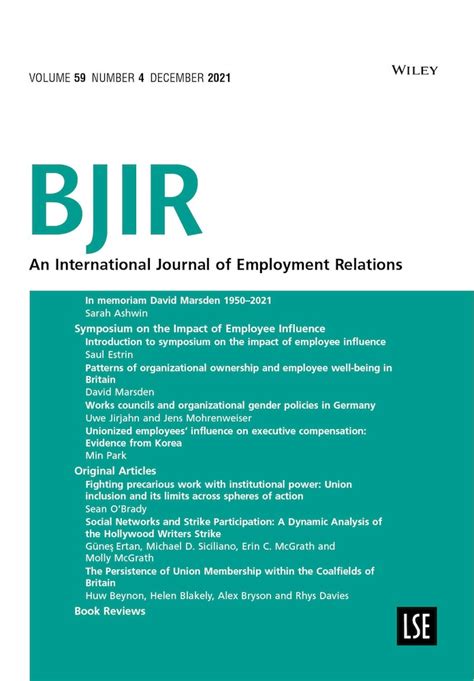
The Dynamic Effects of Works Councils on Plant Productivity: First Evidence from Panel Data
in: British Journal of Industrial Relations, No. 2, 2017
Abstract
We estimate dynamic effects of works councils on labour productivity using newly available information from West German establishment panel data. Conditioning on plant fixed effects and control variables, we find negative productivity effects during the first five years after council introduction but a steady and substantial increase in the councils’ productivity effect thereafter. Our findings support a causal interpretation for the positive correlation between council existence and plant productivity that has been frequently reported in previous studies.
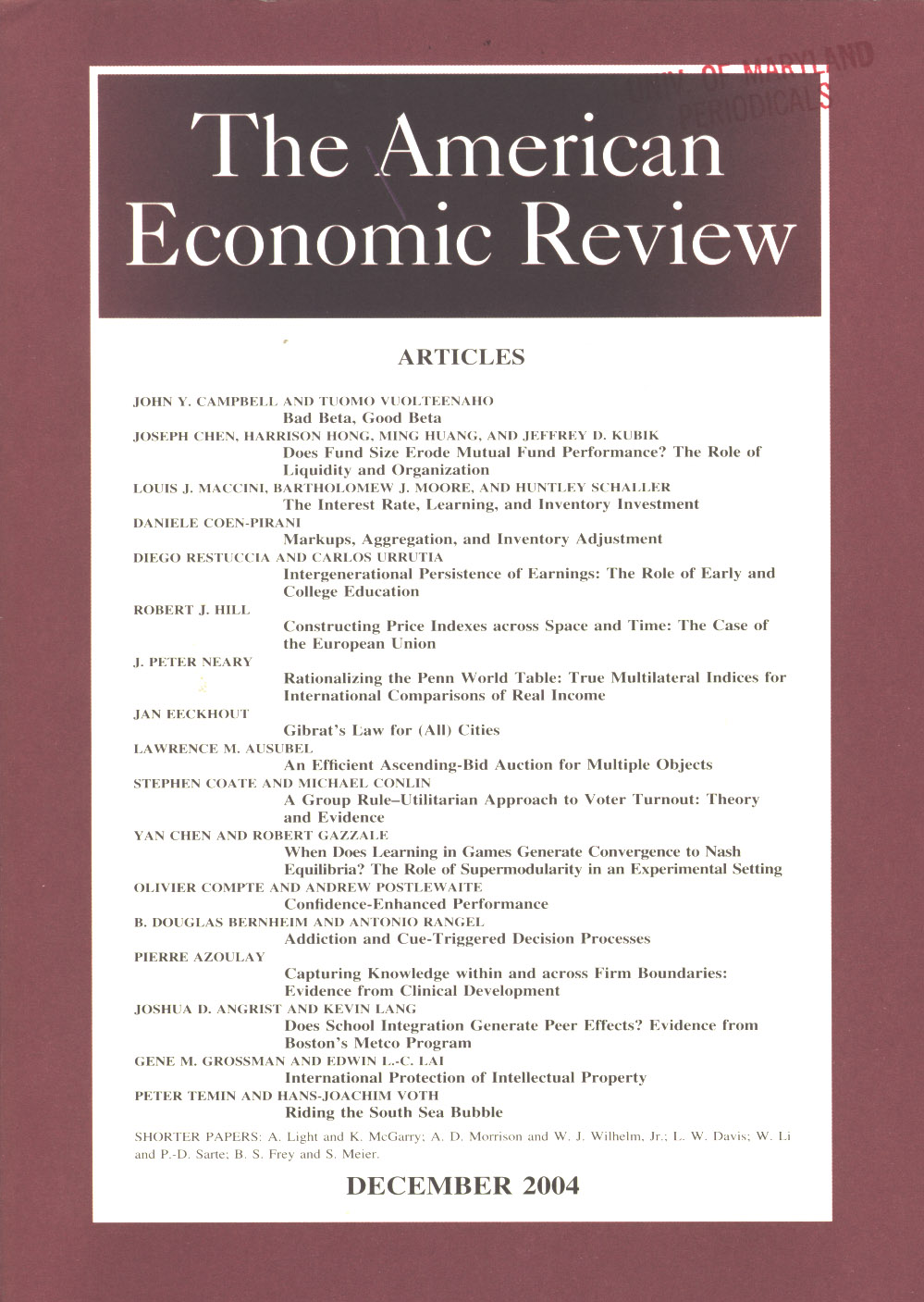
Transferability of Skills across Sectors and Heterogeneous Displacement Costs
in: American Economic Review: Papers and Proceedings, No. 5, 2017
Abstract
We use rich German administrative data to estimate new measures of skill transferability between manufacturing and other sectors. These measures capture the value of workers' human capital when applied in different sectors and are directly related to workers' displacement costs. We estimate these transferability measures using a selection correction model, which addresses workers' endogenous mobility, and a novel selection instrument based on the social network of workers. Our results indicate substantial heterogeneity in how workers can transfer their skills when they move across sectors, which implies heterogeneous displacement costs that depend on the sector to which workers reallocate.
Working Papers
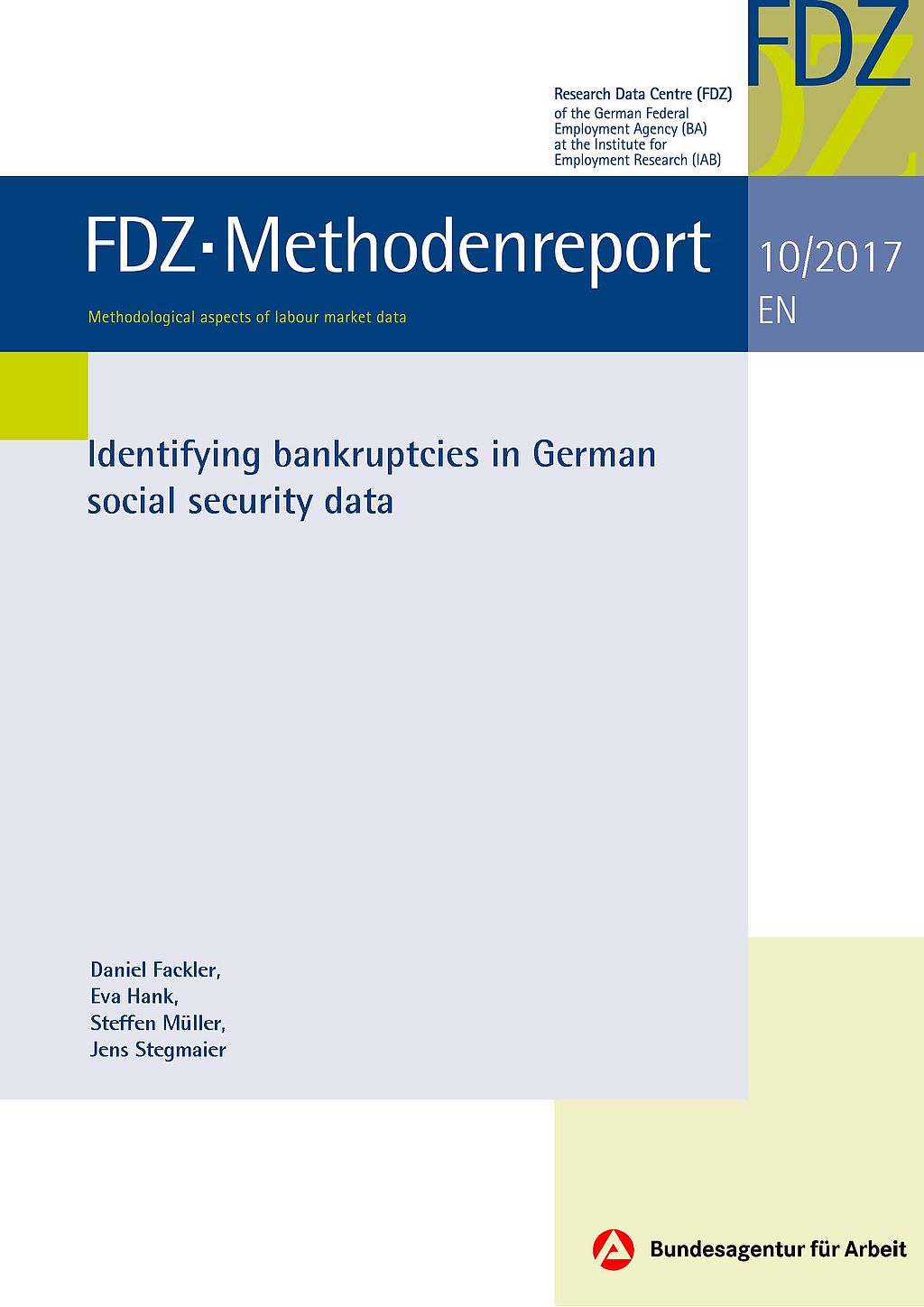
Identifying Bankruptcies in German Social Security Data
in: FDZ-Methodenreport, No. 10, 2017
Abstract
Many empirical studies about firm exits point out that it is important to distinguish between different types of closures, e.g., voluntary and involuntary liquidations. This report describes how exits due to bankruptcies can be identified in the German Establishment History Panel (BHP). In contrast to other closures, bankruptcies can be unambiguously regarded as indica-tion for economic failure and can therefore be interpreted as involuntary exits.


















